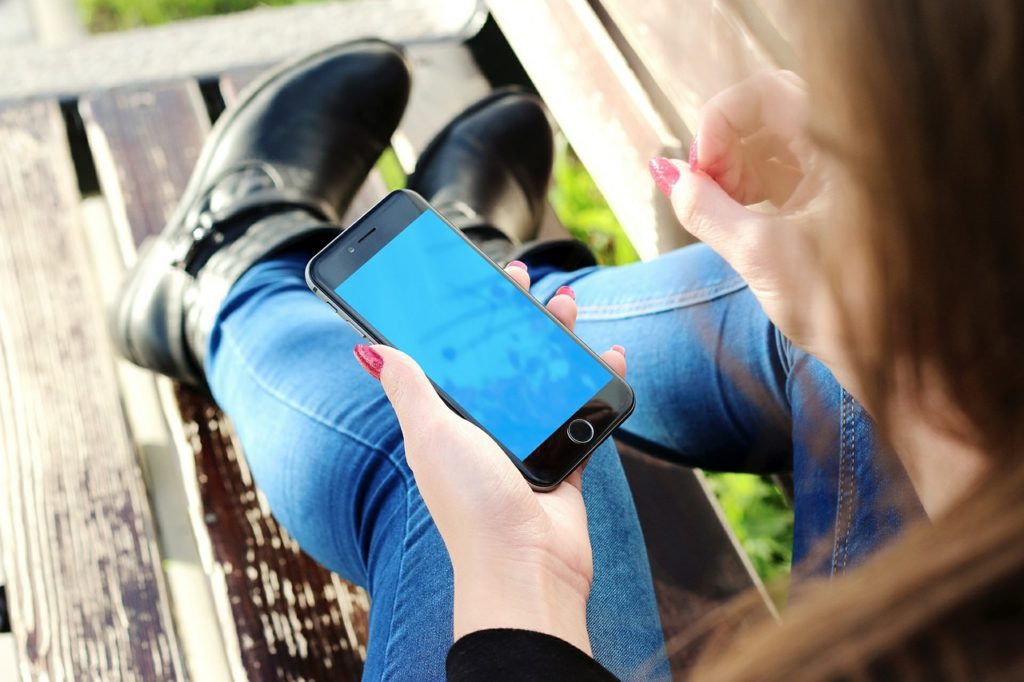It matters that you’re here now
The new term is underway, my regular journeys to London have thus once more resumed, and since I had a few weeks away from all of that, I find myself having to readjust to the daily grind of moving through the capital in shiny-new 2017. It’s funny really: I lived in London for a decade, so you would have thought I’d be used to it by now. But apparently not.
Or at least, in one very specific way, I find that my negative interpretation of the way many Londoners behave has sharpened and deepened. Simply put, if you are walking around in public spaces – stations, streets, libraries, whatever – staring at your mobile phone and ignoring the rest of the universe, I will automatically assume that you’re a moron.
This is grossly unfair. It is! I know it. I know how much the mobile has become our go-to source when we’re out and about for contact, directions, transport information, and so on and so forth. I know that theoretically, anyway, it’s possible to be looking at your phone screen whilst also keeping an eye on where you’re going and others around you using your finely-tuned peripheral vision. I know that, given the enormous number of people also on that train, or in that station, or trying to cross that road, you probably wish you were anywhere but here, and thus take every opportunity you can (headphones may also be present of course) to pretend that actually you are. It is a survival tactic, a means of information-checking, a navigation device.

And yet, insensitive and judgemental soul as I am, I shall still think badly of you. Or rather, I will feel regret that you feel the need to behave in this way. (I’m not quite at the Bernard Black stage of misanthropy. Yet.) Because if you spend a lot of time with your head down and your phone out, you are most likely missing a lot of what’s going on around you. The other people on the tube (fascinating viewing mostly, I guarantee). New houses and unusual shops. Looking up – huge fun in London, since anonymous cafe fronts give way to elegant window frames, beautifully scrolled brickwork, statues or carved text or faded advertisements painted decades ago. The sky, which, at this time of year in such cold and clear weather, has provided the canvas for some heartbreakingly spectacular sunsets. The people huddled at the side of the pavement with no homes to go to. The lost tourists hoping to meet someone’s eye and ask for directions. Possibilities and adventures, all of them, however corny you might think that sounds.
 Digital communication and mobile technology is extraordinary – I’m certainly not advocating throwing it all in the bin and sporting ‘I’m a Luddite, ask me how’ badges. But it can distract us from the fact that we are here, in this place, on this street, in this town, now. It’s like a glowing screen leading to a million different doors of elsewhere (some of which, by the way, are downright nasty). And if you do the same commute every day, I can really see the appeal. But the geographical reality of where you actually are, and the time of day you’re living in, matters too. And you’re missing it, if you only have eyes for your phone.
Digital communication and mobile technology is extraordinary – I’m certainly not advocating throwing it all in the bin and sporting ‘I’m a Luddite, ask me how’ badges. But it can distract us from the fact that we are here, in this place, on this street, in this town, now. It’s like a glowing screen leading to a million different doors of elsewhere (some of which, by the way, are downright nasty). And if you do the same commute every day, I can really see the appeal. But the geographical reality of where you actually are, and the time of day you’re living in, matters too. And you’re missing it, if you only have eyes for your phone.
Everything I’ve said so far casts us in the role of receiver of things: sights, sounds, and so on. But also, crucially, we have agency. If we engage with the world directly around us, we can do something in it, through it, and about it. It might be a brief, immediate act, like buying someone a cup of coffee or helping them find somewhere they can’t get to. Perhaps a poster will catch your eye that will encourage you to give to a charity, or keep your eye out for a lost pet or a missing person. If there’s a local school you can collect supermarket vouchers for. Over time, you’ll start to notice other things too. Perhaps you’ll go into a shop, cafe, library or gallery you walk past every day but never visit. See a planning permission announcement that makes you angry and prompts you to write to your local councillor.
It is this involvement, this identification of tiny things in the world around you and your reaction to it, that allows you to make things happen: to condone, protest, change or ignore. It is the power of local government, of tiny communities that form on buses, or street corners or in coffee shop queues. And like the proverbial grains of sand, together, these tiny things amount to something more. They bring us friendships, pride in our community, the power of a group to make a difference. Or conversely, if we ignore such opportunities, the option of walking past someone quietly suffering – or even loudly so. Of losing beloved havens where we can sit and read, or stand and stare, or sip tea with friends, because no one spotted that they were in danger. Of making yourself into the kind of human who spends considerable portions of your day deliberately ignoring all other humans.
Simply put, politics (yes, the ‘affairs of cities’, that’s what it means) takes all of us, here and now. It is one thing to sign online petitions and frown at newspaper articles about soaring rents or massive funding cuts, but quite another to try and afford to live there – or indeed, afford to live. Digital communication has made the world that we can access far, far bigger, but it can also serve to distract us from what is directly in front of our noses, since they are all pointing down towards our screens. The good news is that we’re the heroes of this story: every single one of us has the power to change things by engaging with the streets and neighbourhoods and parks and buildings we frequent… and above all, by engaging with other people around us. The small-scale versions, just as crucial, of major rallies. It matters that you’re here, now. Make it count. Stop reading this blog, switch off the tablet, and look up.
